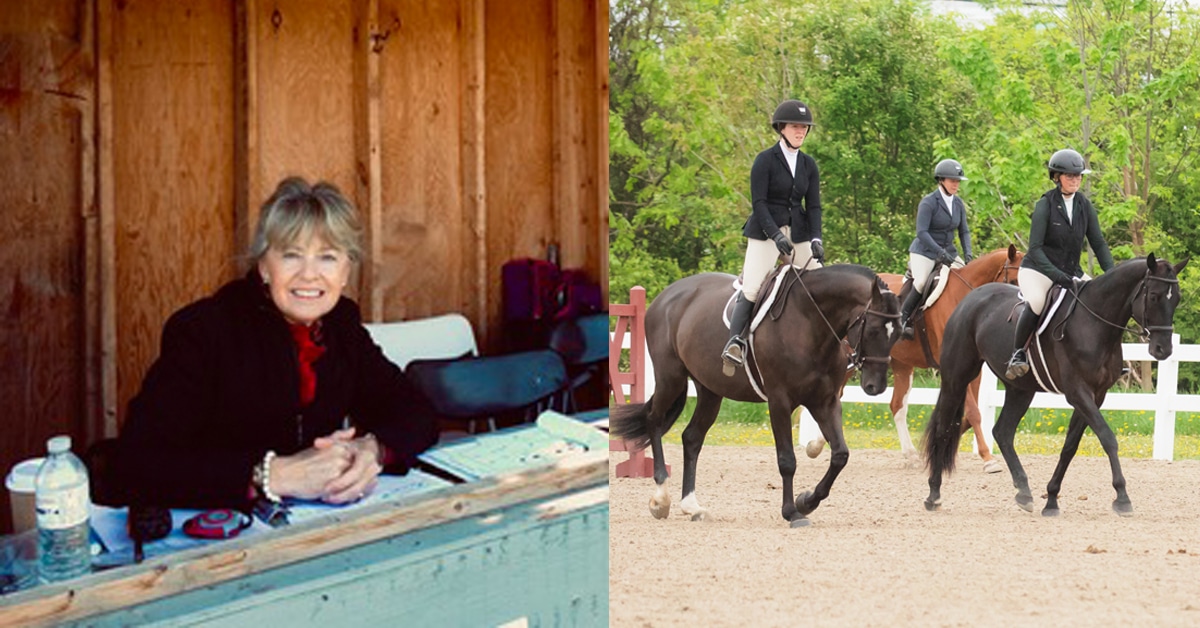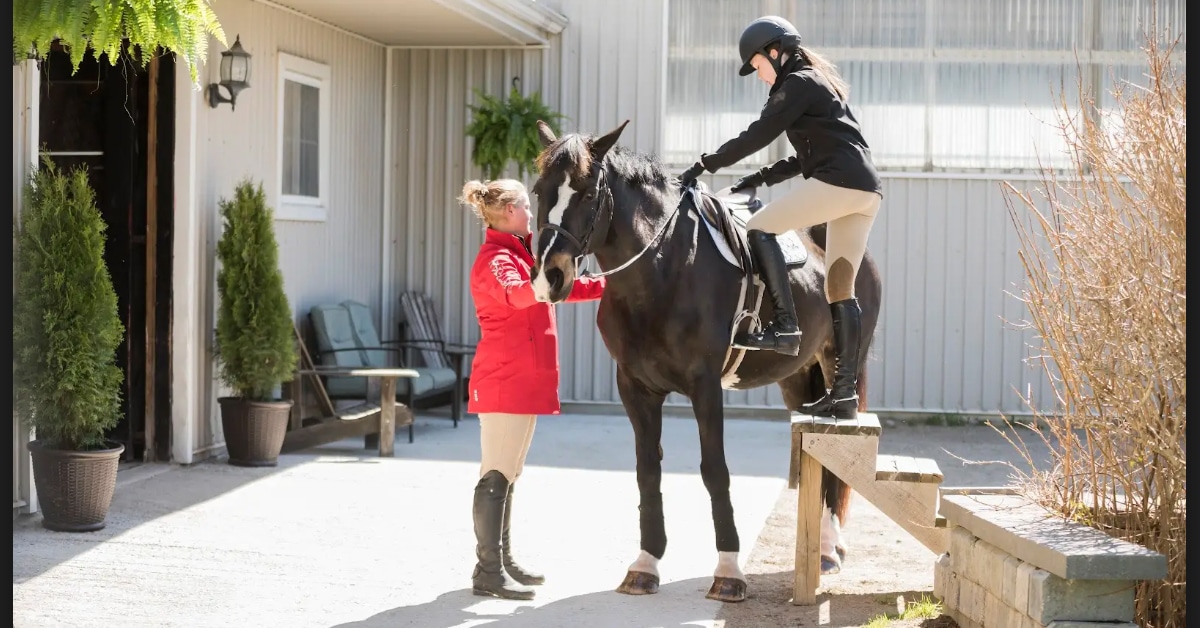“The stable really is the heart of where equestrian starts,” says Helen Richardson, the Manager of Community Development at Ontario Equestrian (OE). “Everyone’s first connection to horses usually happens at a local barn, and that first experience can define a lifetime of involvement in the sport.”
Recognizing the pivotal role that stables play in the health and sustainability of equestrian sport, OE developed the Stable Program to support barn owners and managers in building safer, smarter, and more successful operations. It is a natural extension of the association’s work in coach and athlete development, this time focusing on the facilities where learning, riding, and community all begin.
Filling a Knowledge Gap
Many stable owners, Richardson explains, did not necessarily set out to run businesses. “They bought a farm, had a few horses, and suddenly they’re teaching the neighbour’s kids to ride, or they were an athlete in the sport, and now they want to ookcoach and run their own small facility, but they don’t have all of the legal and accounting and business knowledge that’s really needed to help them grow a sustainable business,” she says.
The pandemic highlighted just how vulnerable these operations can be. “We saw that a lot of stables lacked access to information, things like the legal implications of boarding, insurance coverage, taxation, or farm designation under [Canada Revenue Agency],” Richardson notes. “The Stable Program helps close those gaps by offering education and community support.”
At its core, the program provides access to subject-matter experts through monthly “Stable Expert” webinars on topics such as equine law, business management, insurance, herd health, barn construction, and more. Recent sessions have included equine lawyer Catherine Willson on contracts and liability, and upcoming ones will tackle succession planning, “the tough conversations we don’t always have in this industry,” Richardson adds. These webinars are free to Stable Program members, recorded, and are being built into an online resource library through OE’s Community Hub learning platform. In addition, stables are promoted on the OE website and are part of the Ticket to Ride program.
A Ticket to Ride, Literally
Promotion of participating stables is closely linked to one of OE’s most visible grassroots initiatives, the Ticket to Ride program. These tickets are given to participants who complete the Rookie Riders program, which was recently approved by Physical and Health Education Canada (PHE Canada) and will soon be available in schools nationwide. They are also distributed to the thousands of children who try the Rookie Riders barrels in OE’s Kids’ Zone at the Royal Agricultural Winter Fair which attracts a steady stream of eager participants. Each child and their family will be directed to OE’s online stable directory, inviting them to visit a participating barn for a grooming session, farm tour, or introductory riding lesson.
“It’s a great way to create a bridge between that first spark of interest and a real-life riding experience,” Richardson says. “Our goal is to funnel those new riders into stables that we know are safe, welcoming, and committed to ongoing education.”
Stables can be part of the program by registering or renewing with OE, even at The Royal itself. Facilities that are participating in the Ticket to Ride program are listed on OE’s online Stable Directory, which can be searched by location, discipline, or amenities from indoor arenas to cross-country courses, to find the right fit for their interests.
Beyond education, Richardson emphasizes that the program’s true strength lies in community-building. “Stable owners often work in isolation,” she says. “They don’t necessarily have peers to call when they run into a challenge, whether it’s an insurance question, a tricky client situation, or figuring out when to start charging HST.”
The Stable Program provides that peer network. Members can share insights, ask questions, and learn from each other’s experiences. “Yes, we all compete for students,” she admits, “but if we can all become stronger, more sustainable operations, then the whole industry benefits. We can introduce more people to horses and help keep them engaged for life.”
Looking Ahead: Education Days and Expansion
To join the program, facilities sign on to a Stable Code of Conduct that ensures a baseline of safety and professionalism. This includes commitments to concussion and Safe Sport training, helmet use, insurance, and the presence of at least one licensed coach on-site.
“It’s about helping riders and parents have confidence in the stables they choose,” Richardson says. “There’s no registry for riding schools the way there is for, say, swimming lessons at a public pool. Our directory helps bridge that gap.”
Following the program’s official launch in 2025, OE hosted a full-day workshop at King Animal Hospital featuring experts in finance, insurance, and stable management. The response was overwhelmingly positive, with around 50 facilities represented. “It gave us a great opportunity to listen to stables directly, to hear what they need most,” Richardson recalls.
For 2026, OE plans to host two regional Stable Education Days, one in the Ottawa area and another in Toronto, giving more members a chance to learn, network, and shape the future of the initiative.
“The Stable Program is really about empowering our community,” Richardson concludes. “By supporting the people who run these barns, we’re strengthening the foundation of the entire equestrian ecosystem in Ontario.”
The Latest









